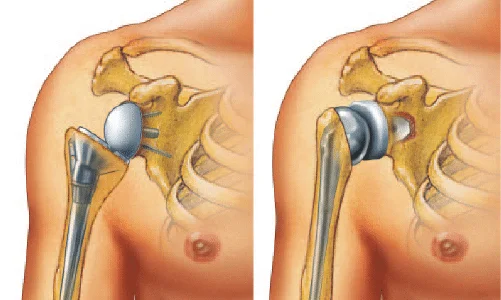Shoulder pain can severely impact your quality of life, causing discomfort and limiting your ability to perform daily activities. If you are suffering from chronic shoulder pain that has not responded to other treatments, shoulder replacement surgery might be an effective solution. Consult with the best orthopaedic surgeons for shoulder replacement surgery at the CK Birla Hospital.

Shoulder replacement surgery is often required when the shoulder joint is damaged due to arthritis, severe fractures, or other degenerative conditions.
The procedure involves replacing the damaged parts of the shoulder with artificial components. If left untreated, shoulder joint issues can lead to chronic pain, decreased mobility, and a significant decline in the quality of life.
| Aspect | Minimally Invasive Surgery | Traditional Open Surgery |
| Incisions | Smaller incisions | Larger incisions |
| Recovery Time | Shorter recovery period | Longer recovery period |
| Pain and Scarring | Less pain and minimal scarring | More pain and noticeable scarring |
| Hospital Stay | Shorter hospital stay | Longer hospital stay |
| Infection Risk | Reduced risk of infection | Higher risk of infection |
Shoulder replacement surgery typically takes about 2-3 hours, depending on the complexity of the procedure and the individual patient’s condition.
Yes, most patients will need to stay in the hospital for at least one night for observation and initial recovery. The duration of the hospital stay may vary based on individual circumstances.
Each case carries its own complications. Patients may start moving the shoulder for minor activities around 4-6 weeks, depending upon the doctor and physiotherapist’s review. However, full recovery will take time. Returning to all normal activities can take somewhere between 3-6 months.
While shoulder replacement surgery is highly effective, it is not guaranteed to prevent future joint problems. However, most patients experience significant and long-lasting relief from pain and improved joint function.
If you experience severe pain after shoulder replacement surgery, contact your surgeon or healthcare provider immediately. It could be a sign of complications that require prompt attention.
Most health insurance plans cover shoulder replacement surgery, but coverage may vary. When planning the surgery, make sure to check with your insurance provider.